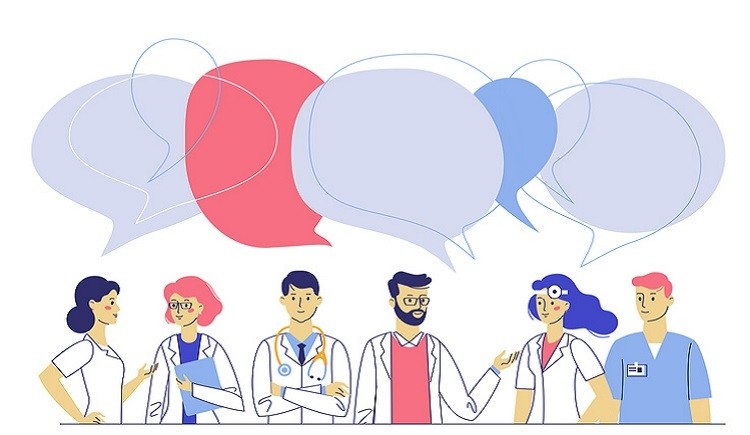SCOPE 2022
Bright ideas, new partnerships, and fun on tap at SCOPE 2022

This year’s Summit for Clinical Ops Executives (SCOPE) event, scheduled February 7-10, looks much different than the event of just two years ago, with a program that’s taking place both in person in Orlando, Florida, and in the virtual realm. Despite the challenges, however, one characteristic remains the same: SCOPE 2022 is still a place to share new ideas and innovations.
Micah Lieberman, executive director of conferences for SCOPE organizer Cambridge Healthtech Institute (CHI), spoke with Outsourcing-Pharma about what’s on tap for this year’s gathering.
OSP: This is now the second SCOPE to take place after COVID arrived. Can you please talk about some of the impacts the pandemic has had on the industry?
ML: It’s hard to believe that we are approaching the two-year mark! These continue to be scary and frustrating times, but let’s focus on some of the silver linings for a moment.
The development of the COVID vaccine is a huge story way beyond the biopharma industry and the fact that one of the greatest feats in modern science was accomplished by our industry despite all the political turmoil happening in parallel is amazing. It was good to see the industry in a positive light in the press and it was even better to see regular people talking about clinical trials.
The other thing is that COVID was a huge accelerant for a lot of innovation already underway inside of the industry (patient-centric trials, decentralized trials, etc.) and it allowed companies and regulatory bodies to commit beyond pilots. Our CHI team continues to pivot and provide updates for our attendees in both an in-person and virtual format.
OSP: Also, how has the pandemic impacted your event—how does SCOPE 2022 look different than SCOPE 2020?
ML: SCOPE Summit is a big industry gathering, a place where all kinds of clinical trial thought leaders, clinical innovators, functional heads, and all the people who actually design and run trials meet and share. A lot of ideas are exchanged, deals are done, old relationships kindled, and new relationships built.
The pandemic has been hard for us as a conference and for the community at large. We pivoted to a virtual format successfully in 2021 and now to a hybrid for 2022, with the hope that the majority of people will be there in person. We wanted to make sure to offer people choice. So, for SCOPE 2022 it is a truly hybrid model, where we offer both options and we have implemented this with some of our sister events successfully.
OSP: You’ve reported that most industry professionals signing up for this year’s event are opting to travel to Orlando—what does their willingness to get on a plane and fly several states (or countries) away to take part?
ML: As of today, the majority of speakers and attendees are opting to join SCOPE in person. I think for many of us we feel the need to see each other face-to-face again and we will take all the precautions we can in order to make that happen – boosters, masks, tests. We continue to update and provide insight on CHI’s safety protocols here:
OSP: COVID-19 is a prevalent theme of (or at least mentioned in) many of the keynotes and sessions. Could you please talk about some of the other key concerns and topics attendees will be able to sit in on?
ML: Something to remember is that during COVID, other diseases have not taken a break. There are limited resources available in any given research organization and if it’s all hands on deck to deal with the COVID emergency, it creates a resource and organizational constraint in other groups focused on oncology or CNS or any other worthy trial that has been in the works for years.
This is a reality all sponsors and CROs have been dealing with. I mention this because many of the talks and panels at SCOPE are non-COVID stories or case studies focused on a unique TA or a function or even an organizational story sharing how a department was built.
With that said, if you look through the agenda you will see that technology/analytics across all functions, patient engagement, decentralized trials, oncology, use of RWD, risk-based monitoring, DE&I, clinical supply chain, outsourcing, resource management are some of the big themes.
OSP: Diversity, equity, and inclusion are an aspect of clinical research many industry pros talk about improving; your Wednesday DE&I agenda appears to be an effort to have a deeper discussion. Could you please tell us a bit about that program (i.e. participants, goals, what you hope attendees will come away with, etc.)?
ML: DE&I has been a part of the discussions and presentations at SCOPE for a number of years now—actually very early on. The issue has become a much bigger part of the conference and is more broadly in the industry now for good reason.
I think years ago it was really the folks closer to the patients in clinical trials and in advocacy who understood this. It took time and effort to raise the discussion to the C-Suite in pharma and to think about it across an entire organization and not just in terms of a diverse patient population for a trial.
For the Wednesday session you mention we have an introductory talk, a case study from Genentech [presented by Meghan McKenzie, principal of inclusion and patient insights] on “Why Advancing Inclusive Research Is a Moral, Scientific and Business Imperative.” That is followed by a panel discussion on “Implicit Bias Around Advocacy and Decision Making: Metrics of DE&I and Speaking the Language of Business and Leadership” [with participants representing the Black Cancer Collaborative, National Institutes of Health, Bristol Myers Squibb, Harvard Medical School, and the Dana Farber Cancer Institute].
This covers a lot and will hopefully make the leaders in the audience realize they have the ability to change their own culture or maybe they will realize that we all have implicit bias. Recognizing this as an individual and then as a group or organization can lead to better decision-making and better outcomes. I don’t think I am doing the topic justice. I guess you have to come to SCOPE to see and hear this!
OSP: Could you please share what SCOPE organizers feel are some other can’t-miss (or at least noteworthy) sessions?
ML: Ooooo, this is too hard to answer. It’s a big event with 22 tracks and I think it depends on your job function and your interests. SCOPE has big-picture strategy as well as in-the-weeds case studies for people in a particular function.
I would say the best place to start is to take a look at the “Conference-at-a-Glance” to get an overview. The track names say a lot and you can see what is being covered. We are covering feasibility, decentralized trials, AI, recruitment, biomarker-driven trials, medical device trials, RWD, clinical supply, budgeting…the list goes on. So, asking me to choose my favorite child from amongst my 22 is tough.
OSP: Are there any new or repeat show features you’d like to share?
ML: If you have never walked our exhibit hall, I think you are missing out. The fact is that almost everything being accomplished in drug dev and clinical research is being done by a group of partners. It is complicated and “it takes a village” as they say. So, the innovation is coming from the sponsors, the CROs, the technology providers -- from all the players, and finding good partners, both established and new ones, is key.
Also, the interactive breakout discussions before the reception are both fun and informative. I sometimes tell people they can join a group discussion that is closely related to their current role or they can choose a group discussion on a topic that is way outside their area of expertise to have access to an informal crash course. Both approaches work.
The 2022 Summit for Clinical Ops Executives is scheduled February 7-10, in Orlando, Florida, and online. For more information or to register, visit https://www.scopesummit.com/.
























